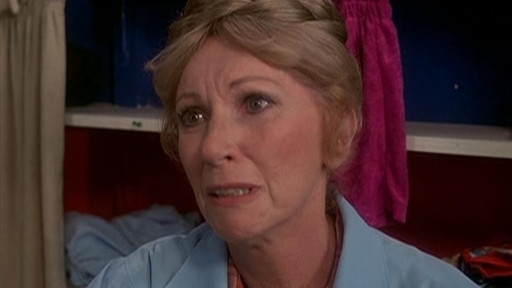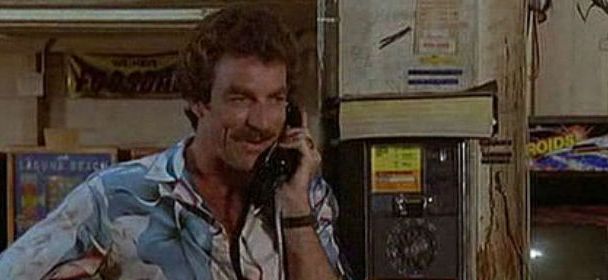Magnum, P.I.
Season 1, Episode 7, “Never Again, Never Again” and Episode 18, “Beauty Knows No Pain”
Original air dates: Jan. 22, 1981 and Apr. 16, 1981
Roshan: This week, we’re diving back into Magnum P.I. focusing on a midseason episode titled “Never Again, Never Again” and the first season finale, “Beauty Knows No Pain.”
These episodes stood out with their intriguing mix of Nazis, mobsters, and triathlons. I found them quite engaging, as they skillfully advanced character dynamics and expanded the show’s universe.
What are your thoughts on these episodes?
Sidant: Let’s delve into “Never Again, Never Again.” The episode’s core theme revolves around Nazis, with a surprising twist of secret Nazis posing as Jewish individuals.
I chose this episode due to its Nazi-related premise, but I was genuinely taken aback by the numerous twists and turns it offered.
Was it somewhat ludicrous? Absolutely.
Did it include moments that might be considered questionable or offensive? Perhaps. Yet, despite these factors, I found myself thoroughly enjoying it.
Over three decades later, it’s challenging to approach such stories with complete seriousness, but I respect the weight the episode adds to the profound tension between two cultures still haunted by their shared history.
While there are moments, like Higgins’ hospital interlude intended for humor, that somewhat deflate this tension, the penultimate scene with Magnum and the revealed Nazis left a strong impression.
What’s your take on the episode’s portrayal of this complex situation, encompassing Nazis, the Jewish hit squad, and their wartime experiences?
Do you feel it struck the right balance, or do you think it could have delved deeper into these themes?
Roshan: The entire episode had a slightly exaggerated and whimsical tone, but it remained entirely effective.
The twist that the individuals we initially thought were Jewish turned out to be Nazis posing as Jewish characters was a stroke of brilliance.
The execution was flawless, especially with the elderly lady as the sinister Nazi antagonist, who goes to the extent of killing a Jewish doctor, revealing her concentration camp survivor past.
It was a well-executed narrative choice. While there were some moments that didn’t reach spectacular heights, the episode, on the whole, was a success.
At the outset of the episode, I questioned the presence of Nazis in 1980s Hawaii, but then I realized that when this episode was created, only 35 years had passed since the end of WWII. In that context, it made sense.
Here we are, 33 years later, watching these Nazis on our TVs in the Magnum episode. It’s astounding to consider that nearly as much time has passed between the premiere of Magnum and today as between World War II and 1981.
As you mentioned, the penultimate scene on the boat with Magnum and the Nazi couple was exceptional.
It carried an unexpected emotional weight, considering the lightheartedness of the rest of the episode, and while it could be seen as slightly melodramatic, it resonated with me.
That said, this is undeniably the most absurd episode of Magnum we’ve encountered so far, bordering on the territory of shows like The A-Team.
The team did an impressive job of working with what might be perceived as a less-than-ideal script, ultimately delivering an engaging episode.
Also Read: Team-Up Review: My So-Called Life, “Dancing in the Dark”
Sidant: Absolutely, it’s crucial to acknowledge the gravity of World War II and the horrors it involved.
Hanna Hertelendy delivered a remarkable performance as Lena, transitioning seamlessly from a frightened elderly woman to a character who, while conflicted, doesn’t escape accountability for her past actions, such as faking concentration camp tattoos.

The episode allows her to express her complex emotions. In the final scene, her outburst, “It was war! It was war!” leaves Magnum in a state of uncertainty. He’s not only been deceived by a seemingly frail elderly woman, but he’s also faced with the decision of whether to take action against her.
Ultimately, Lena makes that choice herself by ending her own life. The episode skillfully interweaves history, remorse, and murder, making for a compelling narrative.
As for the lead cast, this episode marks the mid-point of the season. Magnum, Higgins, Rick, and TC each find themselves in unique positions.
Magnum remains the charismatic and resourceful investigator, Higgins continues to add a touch of refinement and mystery, Rick showcases his charm and street smarts, and TC’s adventurous spirit is still very much alive.
These characters have evolved and grown over the season, making the show’s ensemble even more engaging.
Roshan: I have mixed feelings about the cast in this episode. Magnum continues to be a well-developed character, and the relationship between him and Higgins sees notable progress.
Up until now, their dynamic has been friendly yet competitive, occasionally taking an adversarial turn.
However, when Higgins sustains an injury, Magnum shifts his focus entirely to getting him to the hospital as quickly as possible. He calls upon TC, insisting that he drop everything and rush the chopper to Robin’s Nest.
This change in dynamic, from rivalry to genuine concern, was a positive development, even though the comedic interlude at the hospital didn’t quite hit the mark.
Rick, on the other hand, plays a rather insignificant role in terms of making significant contributions to the episode’s plot.
While he’s present and initiates the investigation for the week, he primarily serves as comedic relief.
TC, similarly, is mainly employed for comic relief or whenever the situation calls for a helicopter.
While the show’s focus isn’t necessarily on an ensemble cast, it’s evident that these characters are still mostly in the same roles as they were in the pilot episode.
I had hoped for more substantial character development and utilization for them as the series progressed.
Sidant: TC and Rick are indeed relegated to secondary roles, and TC’s character appears more engaging, partly because Roger E. Mosely seems at ease portraying the fun-loving friend compared to Larry Manetti’s role.
Additionally, there’s a sense, particularly hinted at in the pilot’s flashbacks, that Magnum shares a closer bond with TC than with Rick.
While you compared Rick to The A-Team‘s Face in the previous week, it’s fair to say he’s a blander version of that archetype.
He doesn’t necessarily detract from scenes he’s a part of, but he also doesn’t significantly enhance them.
However, it’s clear that this is primarily a two-man show. Tom Selleck continues to deliver a commendable performance as Magnum, and I thought John Hillerman handled Higgins’ injuries effectively.
Their relationship remains antagonistic, but this episode reveals a level of respect that has developed between them since the pilot. Higgins appreciates Magnum’s actions, even if he’s reluctant to admit it.
While we discussed the silliness of the Masters’ Estate in the previous week, I’d argue that such a peculiar setup suits these two characters, given that they’re more or less stuck with each other.
Watching their relationship evolve, even if it’s gradual, is enjoyable.
Moving on to the season finale, “Beauty Knows No Pain,” it’s clear from the outset that this episode is knowingly goofy. It feels as if the production team might have had a deal with the Iron Man race, or perhaps CBS just wanted more of Selleck in a very small bathing suit.
The case here primarily serves as a means to fill the time between characters’ efforts to convince Magnum to participate in the race, his training sequences once he reluctantly agrees, and the ultimate race itself.
It’s a departure from the modern-day season finales filled with cliffhangers and dramatic revelations, instead presenting a time when a season finale didn’t carry as much weight. Out of the four hours of the show we’ve seen, this one possesses the least amount of stakes, with the client’s husband facing minimal danger.
Even so, the episode’s primary focus is poking fun at Magnum’s lack of endurance in various events.
What are your thoughts on this episode, given its relatively light-hearted and playful tone?
Roshan: “Beauty Knows No Pain” brought a sense of humor to Magnum P.I., and while it was goofy in a self-aware way, it was a fun departure. Being goofy isn’t inherently a negative aspect, and this episode knows exactly what it’s doing.
However, the pilot episode initially sets the tone for a more serious version of the series, and even “Never Again, Never Again,” while absurd, retains a somewhat more serious undertone than this particular episode.
It raises questions about how to categorize Magnum: Is it primarily a procedural, a sitcom with a unique premise, or a dramedy? I previously commended the show for its clear sense of identity and not requiring an excessive amount of time to define itself.
However, “Beauty Knows No Pain” has left me with some uncertainty in that regard.
You noted the absence of significant dramatic tension in this season finale, which feels both peculiar and refreshing compared to today’s television.
It’s nice not to have an overwhelming sense of heaviness in this episode, but it also appears as a bit of a cop-out in terms of the typical expectations of a season finale.
I also enjoyed various elements in this episode, such as the mobsters, the entertainingly unbearable Jersey Girl who impressively pool-sharks Magnum, the cast’s relentless persuasion to get Magnum to compete, and the mini-plot twists.
It was certainly a fun installment, even if it did introduce some puzzling elements.
Your thoughts capture this episode’s mixture of humor and uncertainty quite well.
Sidant: You make a valid point about the early season one episodes containing elements of comedy, and it’s well within the context of a series featuring four men with varying degrees of familiarity with each other.
The show’s ability to shift tones is one of its strengths, and it generally manages to do so effectively.
Some episodes lean more toward drama (such as delving into old WWII grudges), while others are inherently more comedic.

It doesn’t seem all that far removed from the approach of a show like NCIS, at least from my perspective.
Regarding masculinity, the Iron Man training and competition added an interesting dimension to the portrayal of Magnum’s character and his overall masculinity.
It allowed for a different facet of his character to be explored, showcasing his physical and mental toughness, which is a key aspect of his identity as a private investigator.
Roshan: The concept of masculinity was not as overt in “Never Again, Never Again,” although we did see glimpses of it, especially in Magnum’s physical feats, such as his ability to chase down a boat and cover the distance from the dock to the yacht as it pulled away.
These actions could be seen as falling into the “man-of-action” category of masculine performance.
It aligns with R.W. Connell’s idea that true masculinity is often linked to men’s bodies, either as something inherent in a male body or as an expression related to it.
In Magnum’s case, we frequently witness him performing his masculinity in ways that stem from his physical prowess.
For instance, his ability to chase down a boat or compete in an Iron Man race while shirtless in a European bathing suit reinforces his masculine identity.
One intriguing aspect introduced in “Beauty Knows No Pain” is how the rest of the cast attempts to undermine or even emasculate Magnum by suggesting that he couldn’t win the Iron Man.
However, their actions reflect their underlying belief in Magnum’s capability. TC actively encourages him to participate, sponsors him, supports him, and places a bet on his victory.
Higgins and Rick also provide support in various ways throughout his preparation, training, and the race itself, even if Higgins may have done so partly to witness Magnum’s potential failure.
Barbara trains him and serves as his biggest supporter, despite her claim that he couldn’t accomplish the feat without her “training.”
This dynamic adds a layer of subtlety to the exploration of masculinity, and while it’s less overt than in the premiere, it still effectively contributes to the overall narrative.


